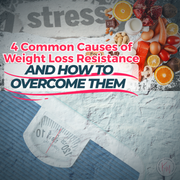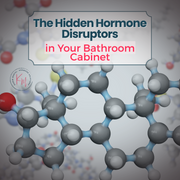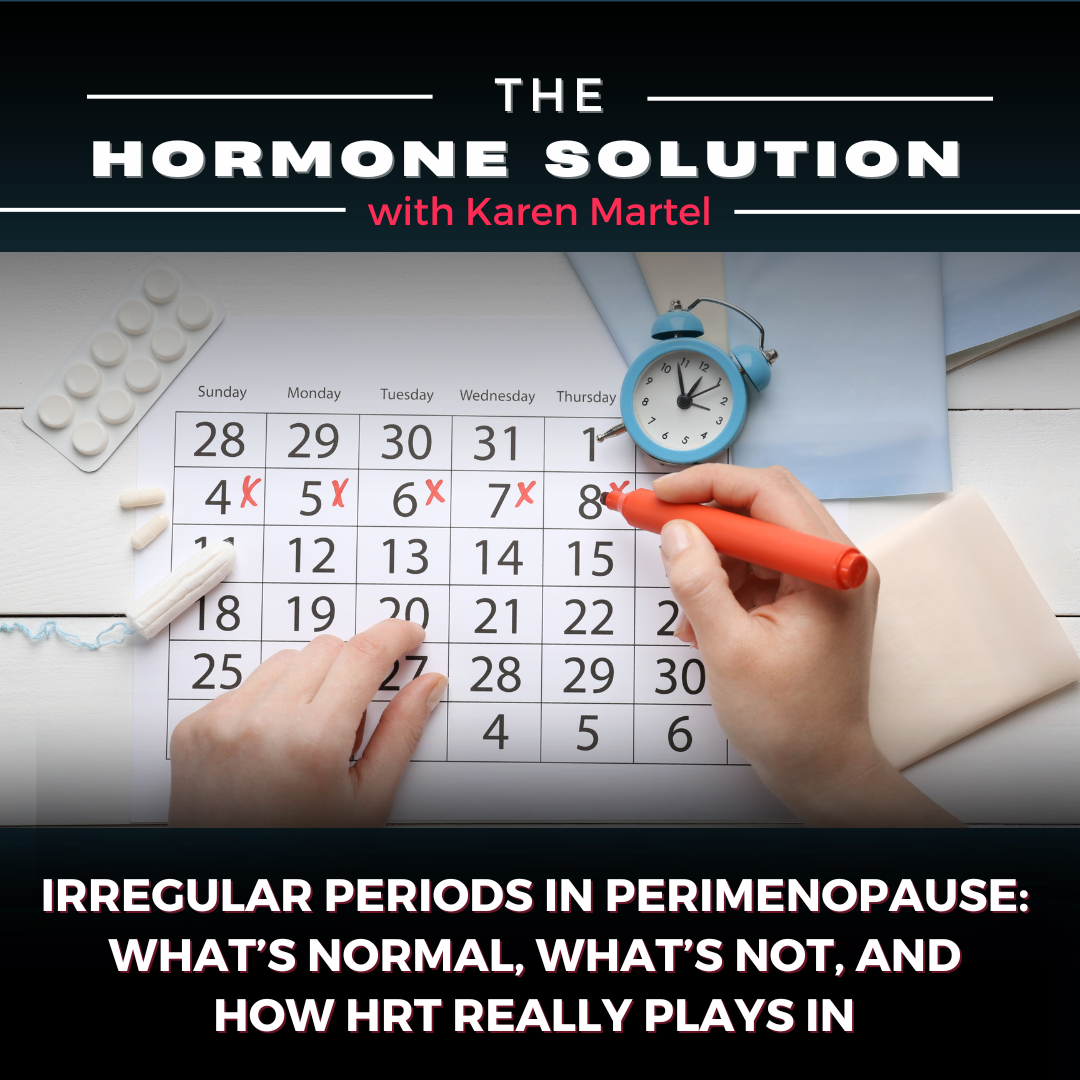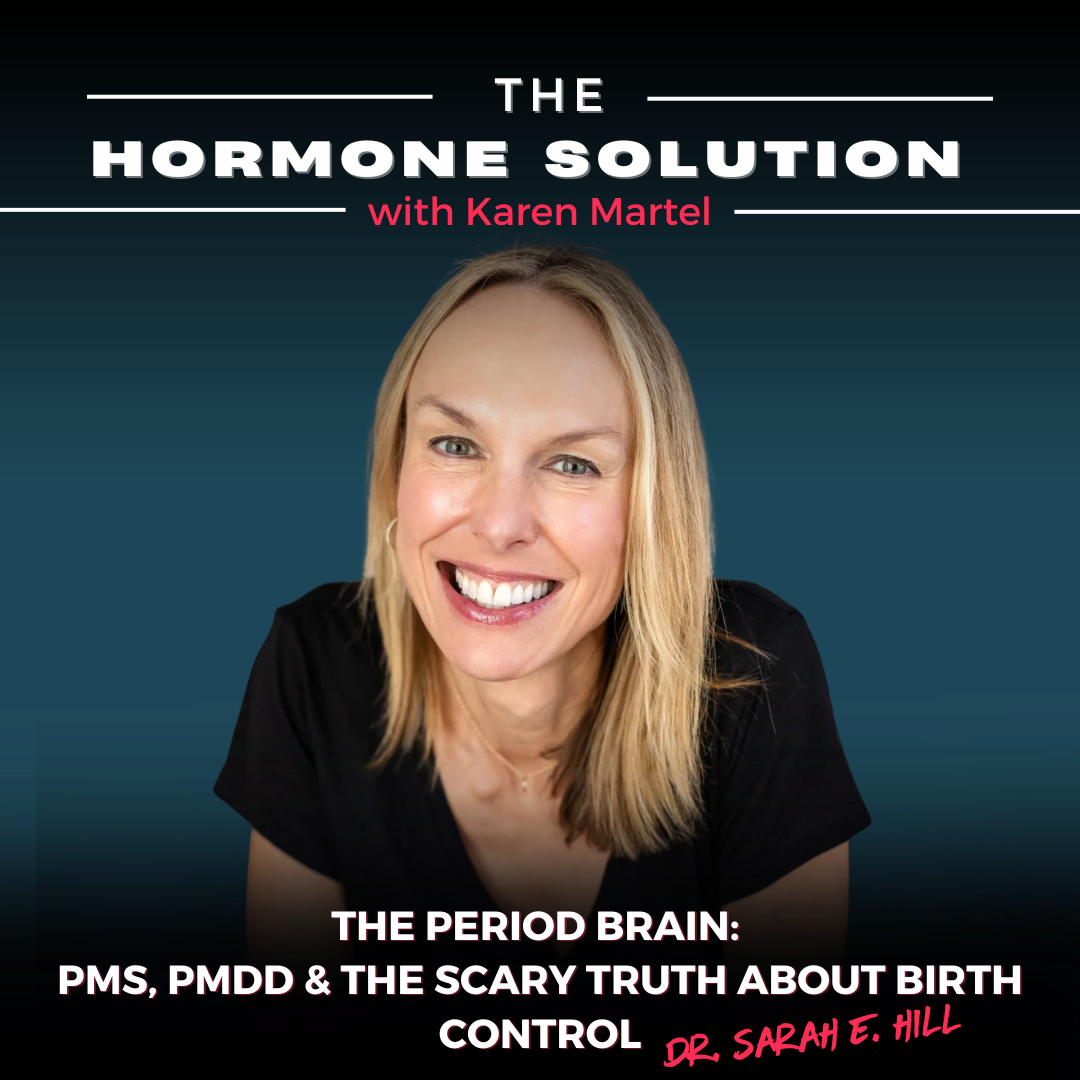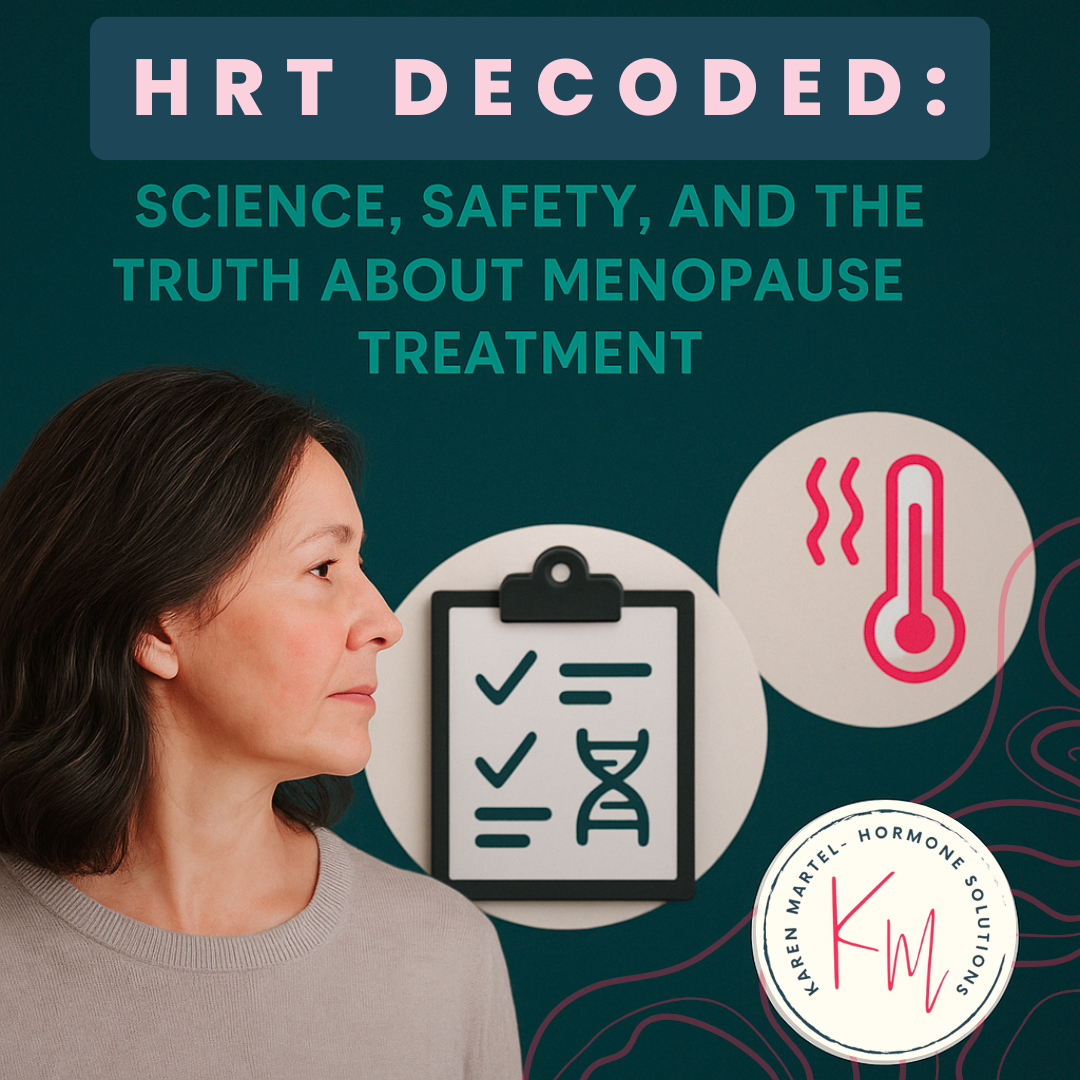
HRT Decoded: Science, Safety, and the Truth About Menopause Treatment
The Truth About HRT: Sorting Through the Confusion, Fear, and Facts Let’s talk about one of the most hotly debated and misunderstood topics in women’s health—hormone replacement therapy (HRT). For decades, women have been left confused, scared, and underserved, all thanks to outdated studies, misinformed doctors, and sensationalist headlines. If you’ve ever dealt with the chaos of hot flashes, mood swings, brain fog, vaginal dryness, or that wired-but-tired insomnia that hits at 2 a.m., you’re not alone. These symptoms are not just “part of aging”—they’re often a sign of declining hormones. HRT was designed to help women feel like themselves again by restoring estrogen and progesterone levels. But the road to mainstream acceptance has been anything but smooth.
How Did HRT Become So Controversial?
Back in the 1960s, HRT was hailed as the ultimate solution for menopause—and not just for symptoms. It was promoted for protecting bones, hearts, and even helping women “stay young.” By the 1990s, millions of women were using it. But then came the Women’s Health Initiative (WHI) study in 2002, and everything changed.
The media exploded with warnings about increased risks of heart disease, breast cancer, and stroke. Practitioners panicked. Women were abruptly pulled off hormones, left to suffer in silence. What the headlines didn’t tell us? The study involved older women using synthetic hormones, many well beyond the 10-year mark after menopause—exactly when HRT can become riskier.
We Know Better Now—And We Have Better Options
Fast forward to today, and we’ve come a long way. Follow-up research has shown that timing matters. When HRT is started within 10 years of menopause (especially before age 60), it reduces risk of heart disease and all-cause mortality. This is called the “window of opportunity.”
And the formulations? Totally different now. Today we have:
-
Bioidentical progesterone (not synthetic progestins that were in the WHI study)
-
Transdermal estrogen in creams, gels, and patches (which bypass the liver and reduce clot risk)
-
Customized protocols tailored to your body and symptoms
This is not your mother’s HRT—and thank goodness for that.
But Let’s Be Honest—It’s Not Always Perfect
Even with the best tools, HRT isn’t a one-size-fits-all solution. Some women experience side effects like bloating, breast tenderness, or mood changes. For others, pre-existing conditions like thyroid dysfunction, endometriosis, or estrogen dominance can make it tricky.
The key? Personalization and patience.
Sometimes it takes a few tries to find the right type, dose, and delivery method. You might need to cycle hormones, adjust timing, or support your liver and gut health to optimize how your body processes them. I always tell women: give it at least three months before you decide it’s not working.
And if your provider isn’t willing to explore options with you? It’s time to find one who will.
So… Is HRT Worth It?
For many women, absolutely yes. When done right and started at the right time, HRT can:
-
Relieve debilitating symptoms
-
Protect your bones and brain
-
Improve mood, sleep, and libido
-
Support healthy aging
But it’s about more than just symptoms—it’s about getting your life back. Women deserve to feel good in midlife and beyond. And they deserve accurate information, not fear.
We still have work to do in shifting the outdated narrative around menopause and hormones. But with education, open conversation, and access to better care, the tide is turning.
Sources
-
The Controversial History of Hormone Replacement Therapy - PMC (2019)
-
Signs HRT is Not Working: Can HRT make your symptoms worse? - Health and Her (2024)
-
The Top Myths About Menopause And HRT Debunked - Henry Ford Health (2025)
-
New study supports hormone replacement therapy in early menopause - SIU Medicine (2024)
-
Is HRT safe to use for the menopause? What the science says - University of Oxford

Find Karen Martel on Apply Podcast
Karen Martel is a Certified Hormone Specialist and Transformational Nutrition Coach dedicated to empowering women through their health journeys.
As the host of the popular podcast The Hormone Solution, Karen tackles the complexities of hormonal health, weight loss resistance, and the challenges that come with perimenopause and menopause.
Her mission is to disrupt outdated narratives surrounding women's health, providing reliable information and practical solutions that help women reclaim their vitality.
Tune in to discover how to embrace life's stages while enhancing overall well-being.


